Introduction
In the ever-evolving world of scientific research, the need for flexible, mobile, and durable workspaces has become increasingly important. As research projects expand across remote locations or involve fieldwork in harsh environments, scientists and researchers require portable laboratories and office units that can easily be transported, set up, and adapted to meet the specific needs of their work. Whether it’s environmental monitoring in remote wilderness areas, medical research in disaster-stricken regions, or military-based scientific studies in hard-to-reach locations, the demand for portable, high-performance research spaces is growing.
Lida Group, a global leader in prefabricated building solutions, has emerged as a trusted partner for researchers seeking portable labs and office units. By refitting steel shipping containers with detachable composite enclosure systems, Lida Group has developed innovative solutions that provide researchers with the flexibility, durability, and functionality they need to conduct their work in a variety of environments. These portable labs and office units offer a perfect blend of mobility, structural integrity, and customization, allowing researchers to operate efficiently in both controlled and extreme conditions.
This article explores how researchers are benefiting from Lida Group’s portable labs and office units, the technology behind the use of steel shipping containers and detachable composite enclosure systems, and the advantages these solutions offer in terms of mobility, cost-effectiveness, and sustainability. We will also examine case studies where researchers have successfully commissioned these units for fieldwork and scientific studies, and the positive impact these solutions have had on research outcomes.
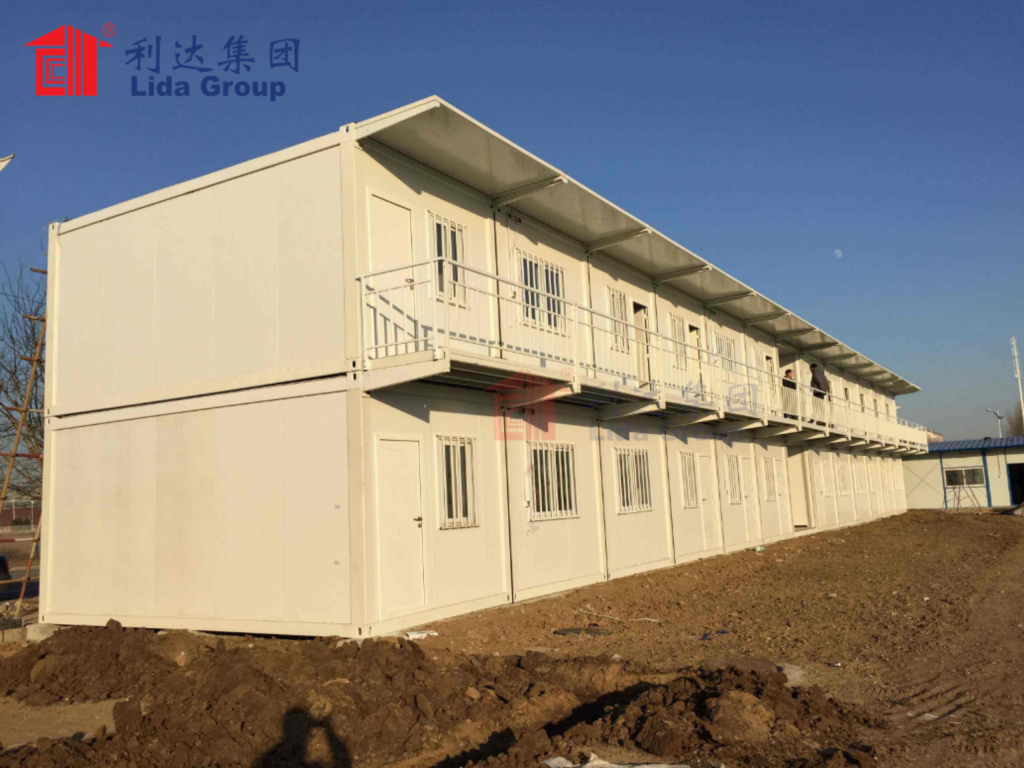
The Growing Need for Portable Labs and Office Units in Research
Scientific research is no longer confined to traditional laboratories or office spaces. Increasingly, researchers are conducting studies in remote or extreme environments, where access to permanent facilities is limited or non-existent. Fieldwork is an essential component of many research disciplines, including environmental science, geology, archaeology, biology, and medical research. In these scenarios, researchers need access to reliable, well-equipped workspaces that can be quickly deployed and adapted to the specific requirements of their projects.
For example, environmental scientists may need to set up temporary labs in remote areas to monitor air, water, or soil quality. Medical researchers responding to infectious disease outbreaks may require mobile labs to conduct diagnostics and testing in affected regions. Similarly, geologists working in isolated areas may need portable office units to analyze samples or coordinate field operations.
Traditional laboratory and office facilities are not always feasible for these types of projects, especially when time, location, and budget constraints are factors. Researchers need portable solutions that can be easily transported, quickly set up, and customized to meet their specific requirements. This is where Lida Group’s portable labs and office units, built using refitted steel shipping containers and detachable composite enclosure systems, provide an ideal solution.
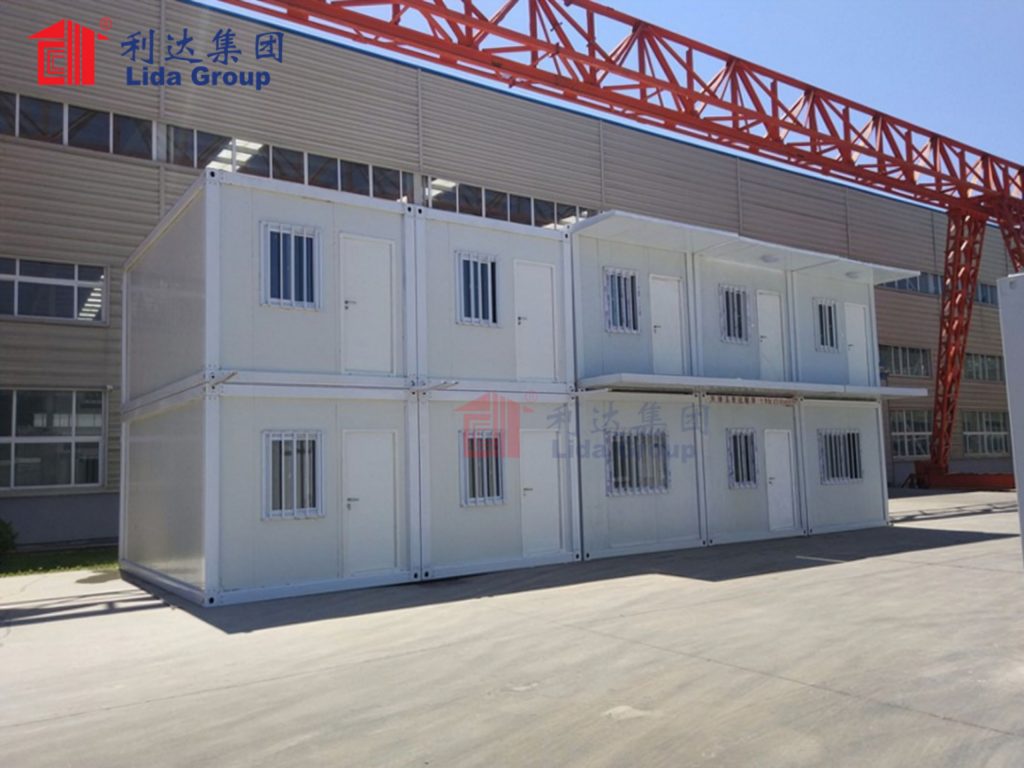
Lida Group: A Leader in Portable Building Solutions
Lida Group has established itself as a global leader in the design and manufacturing of prefabricated buildings, containerized units, and modular structures. With a strong focus on innovation, sustainability, and customer satisfaction, Lida Group has developed a wide range of portable solutions for industries such as construction, healthcare, military, and research. Their expertise in creating durable and mobile structures has made them a preferred partner for researchers who need high-performance labs and office units in the field.
Lida Group’s portable labs and office units are built using steel shipping containers as the core structure, which are then refitted with detachable composite enclosure systems. These units are designed to be easily transportable, customizable, and capable of withstanding harsh environmental conditions. Whether researchers are operating in remote wilderness areas, urban environments, or disaster zones, Lida Group’s portable units provide a reliable and versatile solution.
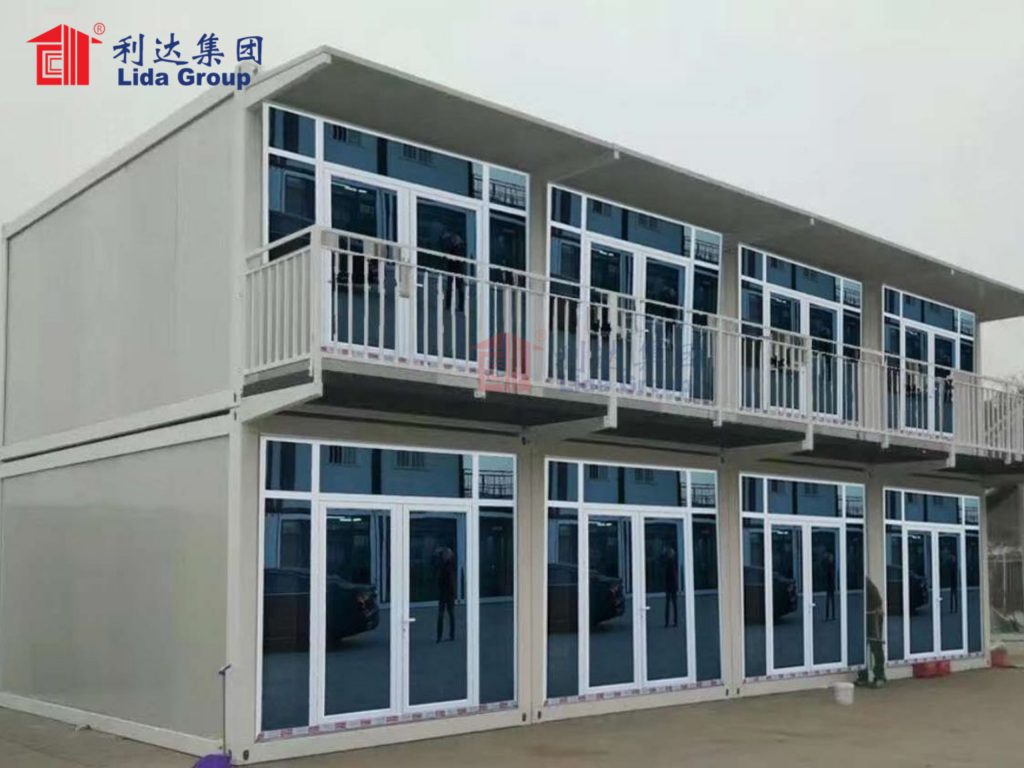
Steel Shipping Containers: The Foundation of Lida Group’s Portable Units
At the heart of Lida Group’s portable lab and office solutions are steel shipping containers. Originally designed for transporting goods across the globe, these containers are known for their strength, durability, and ability to withstand harsh weather conditions. By repurposing these containers for use as portable labs and office units, Lida Group maximizes the benefits of this robust and versatile structure.
1. Durability and Weather Resistance
Steel shipping containers are built to endure the rigors of international shipping, which means they are highly durable and capable of withstanding harsh environmental conditions. Whether researchers are working in extreme heat, cold, or humidity, the containers provide a secure and weather-resistant shelter that protects both people and equipment. This durability is especially important for research projects that take place in remote or inhospitable locations, where the elements can pose significant challenges.
The steel construction of the containers ensures that they can handle high winds, heavy rain, snow, and even seismic activity. This makes them an ideal choice for portable labs and office units that need to remain operational and safe in a variety of environments.
2. Portability and Ease of Transport
One of the most significant advantages of using steel shipping containers is their portability. Shipping containers are designed to be easily transported by trucks, trains, or ships, making them an ideal solution for research teams that need to move their labs or offices between different locations. The containers can be quickly loaded onto transport vehicles and delivered to even the most remote sites with minimal logistical challenges.
For researchers conducting fieldwork in multiple locations or responding to time-sensitive situations (such as environmental disasters), the ability to rapidly deploy and relocate their workspaces is crucial. Lida Group’s portable labs and office units offer the mobility needed to ensure that research projects can proceed without delays, regardless of the location.
3. Modularity and Customization
Steel shipping containers are inherently modular, meaning they can be combined or stacked to create larger or more complex structures. This modularity allows Lida Group to customize the layout of the portable labs and office units based on the specific needs of the research team. For example, multiple containers can be connected to create separate rooms for different functions, such as wet labs, dry labs, office spaces, and storage areas.
In addition to the modular design, Lida Group offers a range of customization options for the interior and exterior of the containers. Researchers can choose from different finishes, furnishings, and configurations to create workspaces that are not only functional but also tailored to their specific research requirements.
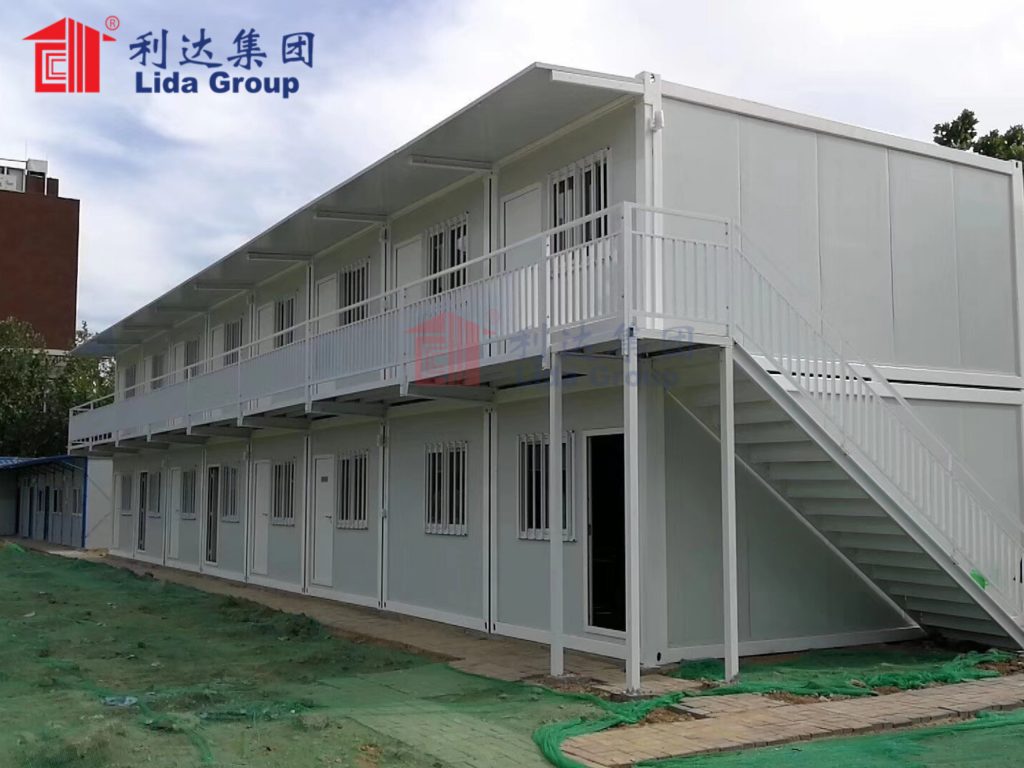
Detachable Composite Enclosure Systems: Enhancing Flexibility and Functionality
While steel shipping containers provide the structural foundation for Lida Group’s portable labs and office units, the addition of detachable composite enclosure systems is what truly sets these units apart. These enclosure systems consist of lightweight, insulated panels that can be easily attached or removed from the container, providing enhanced functionality, thermal insulation, and environmental protection.
1. Thermal Insulation for Climate Control
One of the primary functions of the detachable composite enclosure systems is to provide superior thermal insulation. Steel shipping containers, while durable, can conduct heat and cold, making the interior uncomfortable in extreme temperatures. The composite panels help regulate the temperature inside the lab or office unit, keeping it cool in hot climates and warm in cold environments. This ensures that researchers can work comfortably, regardless of the external conditions.
Effective thermal insulation is particularly important for research projects that involve sensitive equipment or biological samples, which need to be kept within specific temperature ranges. The insulation provided by the composite panels helps maintain a stable internal environment, reducing the risk of damage to equipment or samples due to temperature fluctuations.
2. Quick and Easy Installation
The detachable nature of the composite enclosure systems makes them incredibly easy to install and remove. The panels are designed to fit seamlessly onto the shipping container, and they can be attached or detached without the need for specialized tools or labor. This simplifies the process of setting up or dismantling the portable lab or office unit, allowing researchers to quickly establish their workspace and get to work.
In addition, the panels can be easily replaced or upgraded if necessary, providing researchers with the flexibility to adapt their workspace as their needs evolve over time.
3. Weatherproofing and Environmental Protection
The composite enclosure systems also provide an additional layer of protection against the elements. The panels are designed to be weatherproof, preventing moisture from entering the container and protecting the interior from rain, snow, and humidity. This is especially important for research projects that take place in regions with high humidity or frequent rainfall, where prolonged exposure to moisture can lead to rust, mold, or other damage.
By adding a detachable composite enclosure system to the shipping container, researchers can ensure that their portable labs and office units remain protected from the environment, extending the lifespan of the units and reducing the need for maintenance or repairs.
4. Improved Aesthetic Appeal
While steel shipping containers are known for their durability, they may not always offer the most aesthetically pleasing appearance. The composite enclosure systems help improve the visual appeal of the portable units by covering the industrial look of the container with a more refined and attractive finish. Lida Group offers a variety of finishes and color options for the composite panels, allowing researchers to create a workspace that is both functional and visually appealing.
This can be especially important for research projects that are conducted in public or collaborative environments, where the appearance of the lab or office unit may influence perceptions of professionalism or credibility.
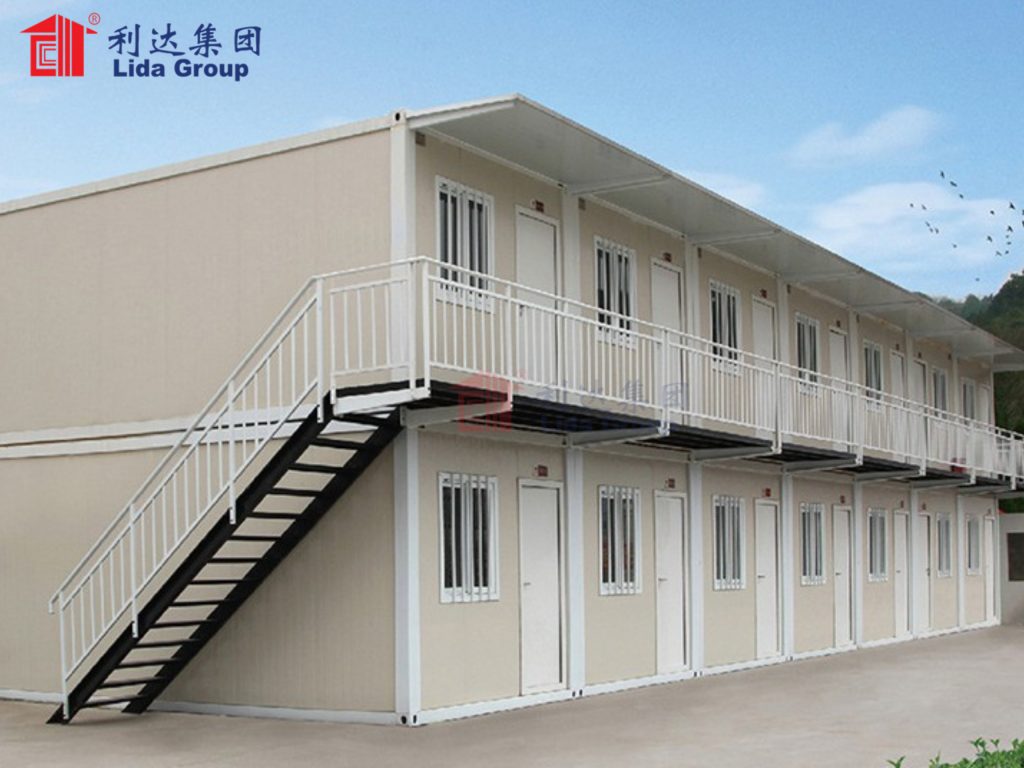
Customization and Flexibility: Adapting Portable Units to Research Needs
Every research project is unique, and the portable labs and office units needed for fieldwork can vary widely depending on the nature of the research, the size of the team, and the specific equipment required. Lida Group’s portable units are designed with flexibility in mind, allowing researchers to customize their workspaces to meet the specific needs of their projects.
1. Modular Design for Scalability
The modular nature of Lida Group’s portable units allows for scalability, meaning that researchers can start with a single container and expand their workspace as needed. For example, a small research team may only require a single container outfitted as a basic lab or office, while a larger team may need multiple containers connected to create separate rooms for different functions.
This scalability is particularly useful for long-term research projects that may evolve over time. As the project progresses and the research team grows or acquires additional equipment, the portable units can be expanded to accommodate these changes.
2. Interior Customization
Lida Group offers a wide range of interior customization options for the portable labs and office units. The interior of each container can be configured to meet the specific needs of the research team, with options for different layouts, furnishings, and equipment installations. For example, a portable lab unit may be outfitted with workbenches, fume hoods, sinks, and storage cabinets, while a portable office unit may include desks, chairs, and communication equipment.
In addition, the units can be equipped with specialized equipment for specific types of research. For example, a biological research team may require a sterile environment with autoclaves and incubators, while an environmental science team may need specialized instruments for measuring air or water quality.
3. Eco-Friendly Features
Sustainability is an increasingly important consideration for researchers, particularly those working in environmental science or conservation. Lida Group’s portable labs and office units can be outfitted with a range of eco-friendly features to reduce their environmental impact. For example, solar panels can be installed on the roof of the container to provide renewable energy for lighting and equipment, reducing the need for diesel generators or other non-renewable energy sources.
Additionally, the composite enclosure systems help reduce energy consumption by maintaining a stable internal temperature, minimizing the need for heating or cooling. Other eco-friendly features, such as water recycling systems or composting toilets, can also be incorporated into the design to further enhance the sustainability of the units.
Advantages of Lida Group’s Portable Labs and Office Units for Researchers
Researchers who commission portable labs and office units from Lida Group benefit from a wide range of advantages that make these units ideally suited for scientific fieldwork and research projects. The following are some of the key benefits that researchers can expect when using Lida Group’s solutions:
1. Mobility and Flexibility
One of the most significant advantages of Lida Group’s portable units is their mobility. The ability to transport the units to different locations allows researchers to conduct fieldwork in a wide variety of environments, from remote wilderness areas to urban settings. This flexibility is essential for projects that require frequent location changes or that involve working in hard-to-reach or temporary sites.
The detachable composite enclosure systems further enhance this flexibility by allowing researchers to quickly set up or dismantle their workspaces as needed. Whether it’s a short-term project or a long-term research expedition, Lida Group’s portable units provide the mobility and adaptability that researchers need to stay productive in the field.
2. Cost-Effectiveness
Compared to building permanent lab or office facilities, using portable units from Lida Group is a more cost-effective solution. Shipping containers are relatively affordable, and the modular design of the units allows researchers to scale their workspace according to their budget. The units can also be reused for multiple projects, providing long-term value and reducing overall costs.
In addition, the energy-efficient design of the composite enclosure systems helps reduce operating costs by minimizing the need for heating, cooling, and electricity. For researchers working on tight budgets, these cost savings can make a significant difference in the feasibility of their projects.
3. Durability and Low Maintenance
Lida Group’s portable units are built to last. The steel shipping containers provide a strong and durable foundation that can withstand harsh environmental conditions, while the composite enclosure systems offer additional protection against the elements. This durability ensures that the units require minimal maintenance, allowing researchers to focus on their work without worrying about repairs or upkeep.
The long lifespan of the units also makes them a sustainable investment, as they can be used for multiple projects over time without the need for replacement.
4. Customizable and Adaptable Workspaces
Every research project has unique requirements, and Lida Group’s portable units can be fully customized to meet these needs. Whether researchers need a sterile lab environment, office space for data analysis, or storage for equipment, the units can be configured to provide the necessary functionality.
The ability to customize the interior layout, furnishings, and equipment ensures that researchers have everything they need to conduct their work efficiently. The modular design of the units also allows for easy expansion or reconfiguration as the project evolves.
5. Sustainability
Sustainability is a key concern for many researchers, particularly those working in environmental or conservation fields. Lida Group’s portable labs and office units are designed with sustainability in mind, offering eco-friendly features such as solar panels, energy-efficient insulation, and water recycling systems. These features help reduce the environmental impact of the units, making them a responsible choice for researchers who are committed to minimizing their carbon footprint.
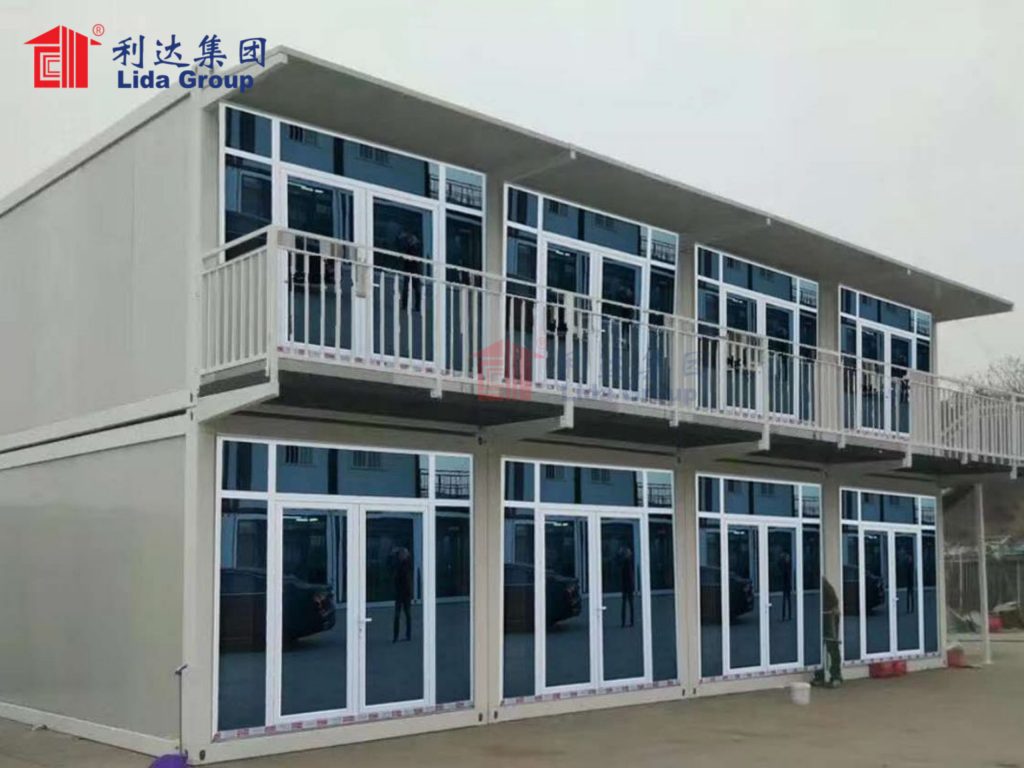
Real-World Applications: Lida Group’s Portable Labs and Office Units in Action
To better understand the benefits of Lida Group’s portable labs and office units, let’s explore a few real-world examples of how researchers have successfully commissioned these units for fieldwork and scientific studies.
Case Study 1: Environmental Research in the Amazon Rainforest
A team of environmental scientists was conducting research in the Amazon rainforest to monitor the effects of deforestation on local ecosystems. The research site was located in a remote area with no access to permanent lab facilities, and the team needed a mobile solution that could be easily transported to the site and set up quickly.
Lida Group provided the team with a portable lab unit made from a steel shipping container outfitted with detachable composite enclosure systems. The unit was equipped with workbenches, fume hoods, and storage for samples, allowing the team to conduct their research on-site without the need to transport samples to a distant lab.
The composite panels provided excellent thermal insulation, keeping the interior of the lab cool despite the hot and humid conditions in the rainforest. The unit was also equipped with solar panels to provide renewable energy for the lab’s equipment, reducing the need for generators and minimizing the team’s environmental impact.
The portable lab allowed the research team to collect and analyze data in real-time, leading to more accurate and timely results. The success of the project demonstrated the value of Lida Group’s portable labs for environmental research in remote locations.
Case Study 2: Medical Research in Disaster Zones
Following a major natural disaster, a medical research team was deployed to the affected region to study the spread of infectious diseases and provide on-site diagnostics and treatment. The team needed a mobile medical lab that could be quickly transported to the disaster zone and set up in the field.
Lida Group provided a portable lab unit designed specifically for medical research and diagnostics. The unit was equipped with sterile workspaces, diagnostic equipment, and storage for medical supplies. The detachable composite enclosure system ensured that the lab remained clean and protected from the elements, even in the challenging conditions of the disaster zone.
The mobility of the lab allowed the research team to move quickly between different areas of the disaster zone, providing critical medical support and conducting research on disease outbreaks. The success of the project highlighted the importance of portable labs for medical research and disaster response.
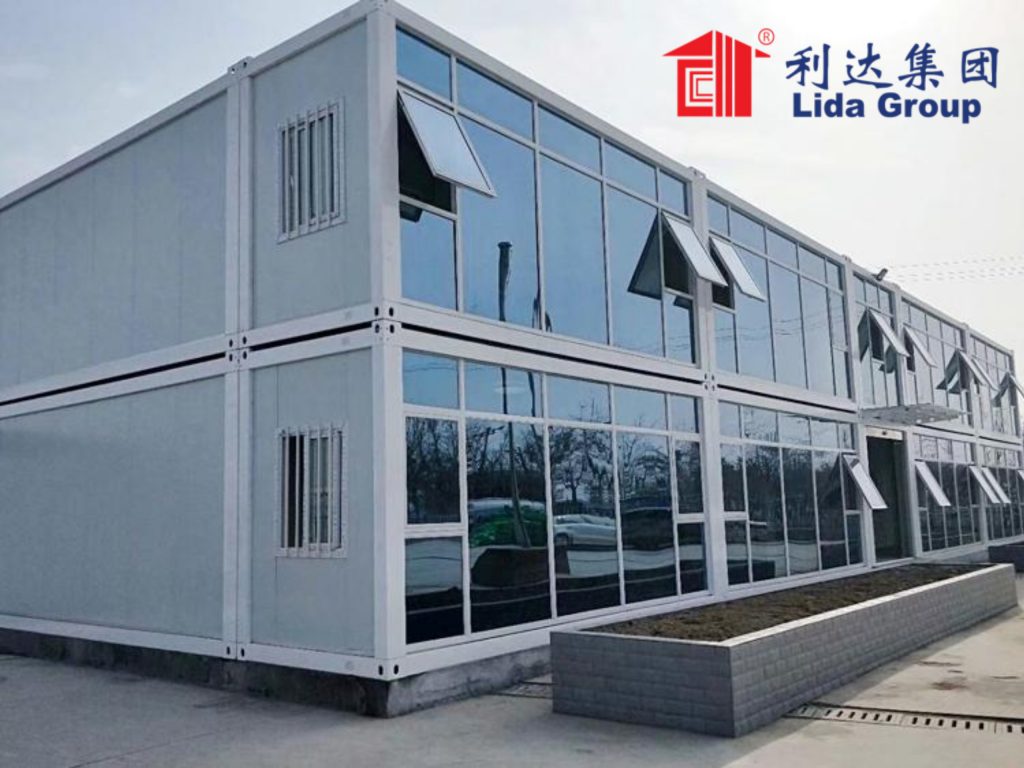
Conclusion: The Future of Portable Labs and Office Units for Researchers
As scientific research continues to expand into new and challenging environments, the need for flexible, mobile, and durable workspaces will only increase. Lida Group’s portable labs and office units, which combine the strength and durability of steel shipping containers with the flexibility and functionality of detachable composite enclosure systems, offer an ideal solution for researchers working in the field.
These portable units provide researchers with the mobility, customization, and environmental protection they need to conduct their work efficiently and effectively in a wide range of settings. Whether it’s environmental monitoring, medical research, or scientific studies in remote or extreme locations, Lida Group’s portable labs and office units offer a reliable and cost-effective solution.
In conclusion, Lida Group’s portable labs and office units are poised to play a significant role in the future of scientific research, providing the tools and infrastructure researchers need to succeed in an increasingly dynamic and complex world. With their focus on innovation, sustainability, and customer satisfaction, Lida Group is helping to shape the future of portable research spaces, enabling scientists to push the boundaries of knowledge and discovery.

Related news
-
Infrastructure projects utilize economical fully-serviced mobile camps from Lida Group integrating steel container frames with prefab insulated wall panel systems.
2024-11-13 17:22:28
-
Small manufacturers invest in affordable fireproof and floodproof structural steel buildings from Lida Group for long-lasting production spaces and storage on tight budgets.
2024-10-29 17:43:37
-
Isolated mining operations opt for mobile accommodation units designed by Lida Group combining cargo containers with snap-fit insulating exterior panels.
2024-10-29 14:28:59
contact us
- Tel: +86-532-88966982
- Whatsapp: +86-13793209022
- E-mail: sales@lidajituan.com


